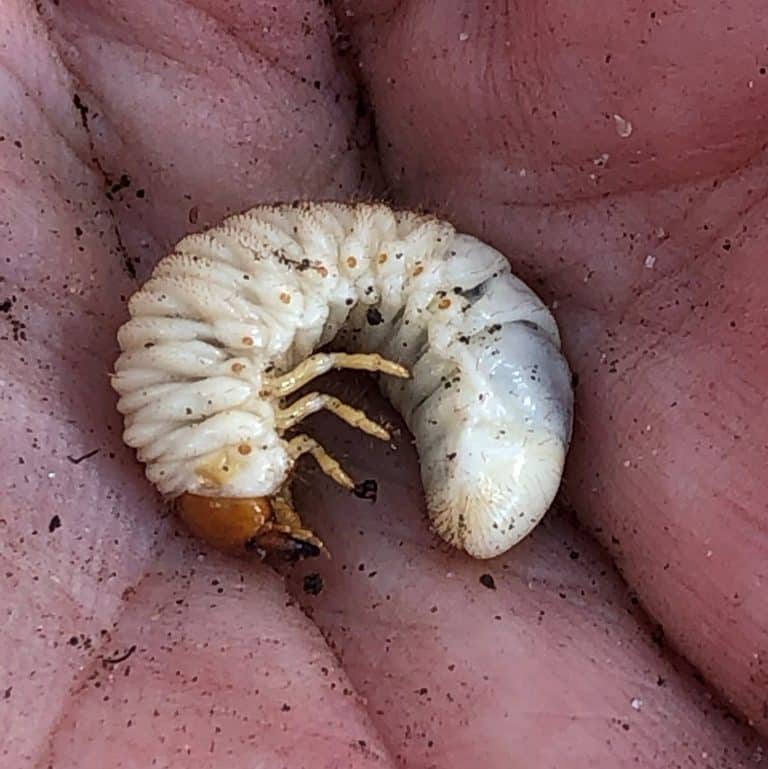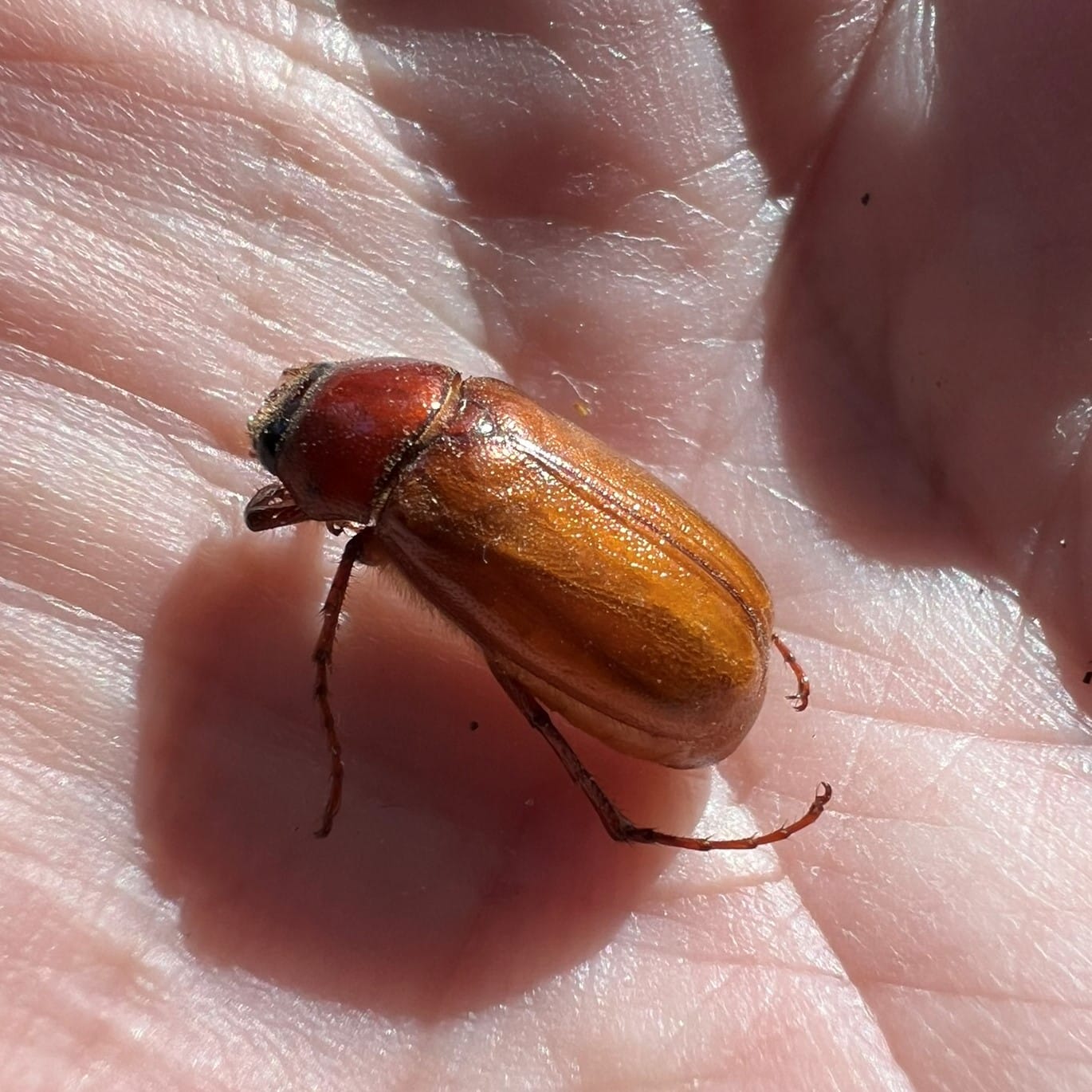Early summer always brings the fun antics of one of my favorite kinds of insects – June Bugs – more properly known as June Beetles or May Beetles. For most of us, especially in the South, a bug is any kind of insect. For entomologists, like myself, a bug is a member of a different group entirely – but I digress. As for the pronunciation of “bug”, that is another topic altogether and as far as I am concerned, up to the speaker. Cajuns would just say betaille.
What makes June Beetles so interesting to me is how clumsy they appear to be, whether when flying or stumbling around on the porch under the light that attracted them the night before. In their defense they are beetles, that are not the best flyers as a group. Beetles have two pairs of wings. The outer or forewings are hard and rigid, serving to protect the hindwings, folded beneath that are used to fly.
To watch a June Beetle fly is to question the wisdom of this design, as the beetle must hold out the rigid forewings upwards and to the side to allow the hind wings to unfold and start flapping. They resemble a bus that would be better off rolling around rather than flying. Aerodynamics aside, these beetles do not need to fly far, only to find a mate and find food during their short lifespan, typically a few weeks or months after emerging in late spring.
The bulk of a June Beetle’s life is spent in the larval or grub stage, living underground, feeding on roots and decaying matter. Many a gardener have dug up these grubs and moaned and grown about the damage they must have done. In reality, these grubs do relatively little damage compared to other turf pests. Besides, they are there because of the turf grasses upon which they feed, so put the blame where it belongs – on us for wanting lawns in the first place.

It is at night when these beetles come into their own. I once witnessed numerous beetles flying just above the surface of a lawn one summer, backlit by the streetlights. They were actively seeking mates. For a clumsy flyer, staying low to the ground makes sense. At that height and with so many flying around, the sight seemed eloquent and functional. So much for my criticism of their design.
What brings a smile to my face when I see a June Beetle is the memory of our oldest children’s childhood. Our only son Jeremy adopted a June Beetle one summer when he was about 6 years old back in the mid 1980’s – before electronics and when playing outdoors was cool. I recall he named his bug and rode that June Beetle in his little cars across the porch and walkway for about an hour or so before his younger sister Catherine (3 years younger) showed up on the scene. I can still hear the scream. Apparently, she was not impressed with her brother’s pet and squished it beneath her foot. That is my recollection of the event, but I know each of them may have a different take on it.
In any case, Mary and I are enjoying introducing our grandchildren to the joys of insect pets, like June Beetles. Cheap entertainment with lots of chuckles and laughter.
Hope to see you in our great outdoors!



